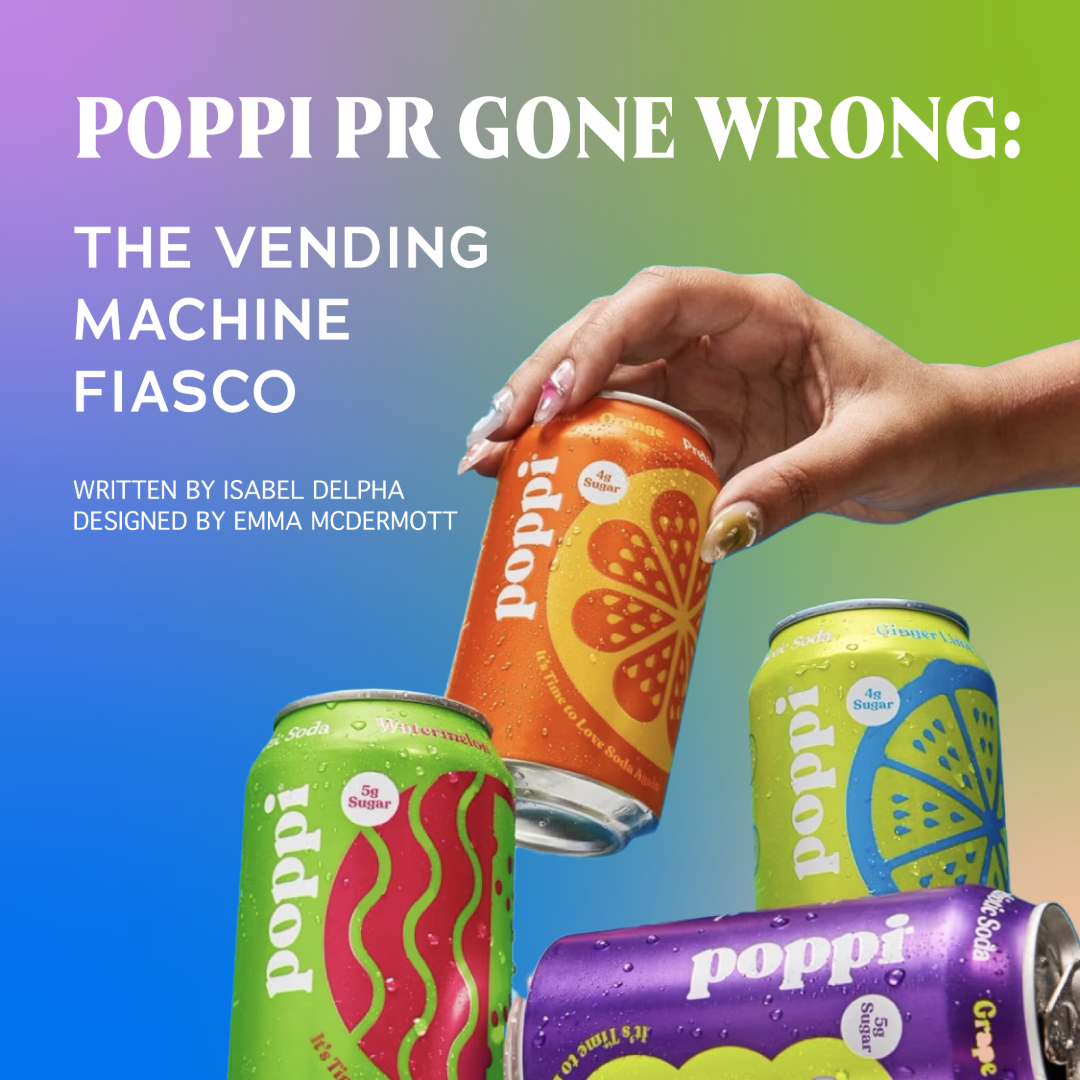
Every year when the Super Bowl approaches, companies produce their most attention-grabbing advertisements and develop creative marketing campaigns to stand out during the big game. Poppi, the prebiotic “gut-healthy” soda known for its colorful, “aesthetic” packaging, evidently felt this pressure and was intent on delivering a unique PR package. The result? The company sent 32 branded vending machines to influencers for them to furnish their homes on game day, and, of course, to flaunt on social media to get the internet talking about Poppi. The campaign certainly succeeded in that goal, but not in the way that Poppi had probably hoped.
Many of the initial reactions to the campaign expressed disappointment in the choice Poppi made to send the vending machines to influencers. TikTok content creators like Kaeli Mae, Jake Shane and Rach Sullivan were among the influential recipients. Many people have remarked that, rather than sending gifts to influencers who are presumably wealthy enough to keep Poppi soda stocked by their own means, Poppi could have sent the vending machines to people and communities that are more in need.
“They could be handing them out in LA to first responders and people losing their homes,” commented one TikTok user under a video explaining the controversy.
“Poppi really thought they did something by sending influencers vending machines when some children in this country can’t afford school lunch,” another TikToker said in a video. “Put one in schools, hospital break rooms, shall I keep going?”
She further added in her caption, “I switched to @Olipop officially.”
Olipop, also a “healthy” prebiotic soda company and one of Poppi’s biggest competitors, clearly was going to benefit from the controversy anyway. But it didn’t just sit back and passively claim customers who were irritated by Poppi’s campaign. It instead stoked the flames of the controversy by commenting under one of Poppi’s promotional videos that each vending machine cost a whopping $25,000 to produce. Multiply that by 32 influencers, and the innocuous marketing campaign becomes at least an $800,000 endeavor. This infuriated the people who already found the campaign to be over-the-top and unnecessarily lavish. Olipop’s claim about the vending machine prices was later reported to be untrue, with $25,000 being more than twice the actual cost.
In response to the controversy, Poppi co-founder Allison Ellsworth posted a TikTok on Poppi’s official account. She began by debunking Olipop’s claims as “misinformation.” Ellsworth said that while working with content creators has always been a major aspect of Poppi’s brand, Poppi can “always learn and do better,” and asked for feedback on where people really want to see the vending machines. Though some commenters responded in earnest, suggesting places like homeless shelters and children’s hospitals, many of the top comments under the video criticize Ellsworth’s response. Some even went so far as to pledge loyalty to Olipop.
“I couldn’t hear you over the sound of Olipop being restocked in my fridge,” said one user.
While it may take time for Poppi to recover from this mishap, especially considering how much its top competitor is benefitting from it, the reputational damage that has resulted will likely be reparable. But the incident as a whole suggests a marked change in people’s perception of influencer marketing. Perhaps it’s the state of the economy or the deluge of bleak current events in the news, but people are losing patience with extravagant social media trends and how out-of-touch companies and influencers seem to be. This doesn’t mean the vending machine campaign was a terrible idea; it just means that Poppi should rethink who it is sending gifts to not just for the sake of saving face, but also for creating a real positive impact. Only time will tell whether it, and other brands, learn from this mistake.